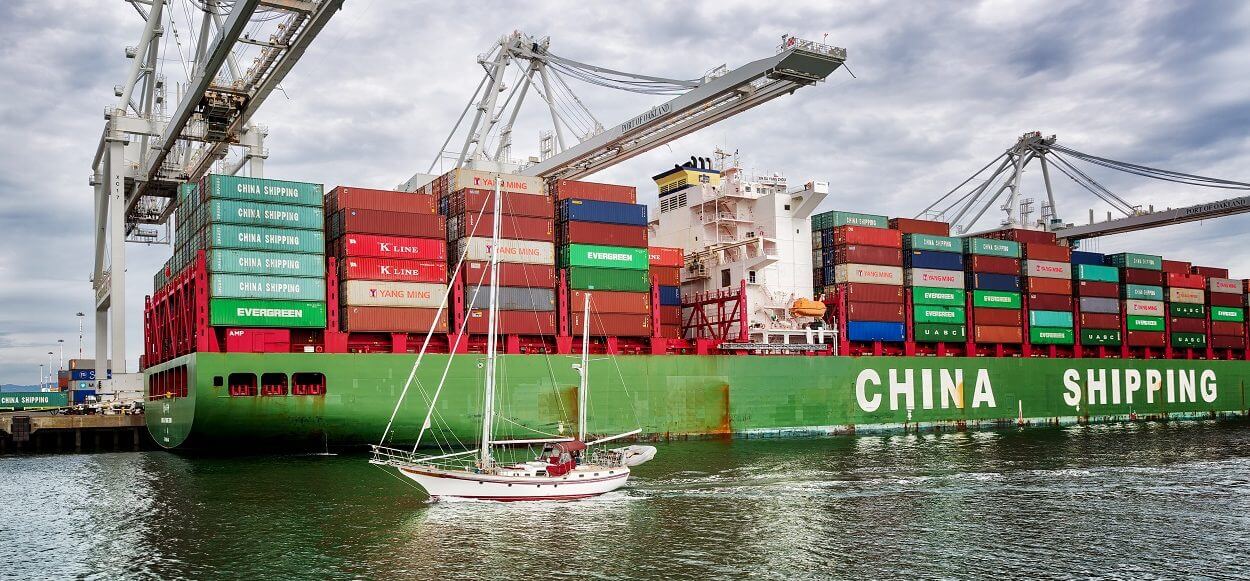Total imports in China contributed approximately 15.2% to overall GDP in 2021, with even greater export contributions, amounting to roughly 676.7 billion U.S. dollars. As the world’s largest trader of goods, China has experienced a steady development of its imports throughout the decade following 2013, when it overcame the United States in total trade volume. In the previous year, China’s imports approximated to 2.55 billion yuan and 2 billion yuan between its two major trading partners, which are countries belonging to the European Union and the ASEAN.
When considering importing and exporting goods to and from China, there are a number of challenges and potential obstacles impacting global trade in this region. Amongst the barriers to importing and exporting goods, foreign investors should consider key factors such as rights, taxations, customs assessment and declaration, tariff classification, place of origin, and more. This article aims to highlight and outline the key considerations surrounding imports and exports, when doing business in China.
Taxation on Imports and Exports
Any activities involving importing and exporting to and from China may incur taxes in the form of value-added tax and tariffs, as well as a potential consumption tax levied on goods sold.
According to a notice by the Ministry of Finance, State Administration of Taxation regarding VAT on imports, the applicable VAT rates have been reduced. For general taxpayers, if the applicable rate was 16% it has been reduced to 13%, while if the original tax rate was 10% it would be reduced to 9%.
Additionally, for any specific imports of U.S. origin, further tariffs could be imposed as a reply to Section 301 of the US Trade Act, which contributes to additional tariffs on Chinese goods in the US.
Right to Imports and Exports
Subject to the Measures for the Registration of Foreign Trade Operators, revised in 2021, foreign invested enterprises were able to have authorization in importing and exporting products, beyond goods used for trading by the state.
As an active importer or exporter, foreign invested enterprises are required to acquire customs registration records when declaring with customs. All foreign invested enterprises engaged in trade will need a representative with a customs registration status to declare with customs on its behalf, in the case that a registration process was not fulfilled.
Customs Assessment of Imports/Exports
In alignment with the WTO Agreement on Implementation of Article VII of the General Agreement on Tariff and Trade of 1994, China has been committed to accurately assessing the value of imported goods for the purpose of determining the exact payable amount of customs duties.
The General Administration of Customs is also highly invested in the valuation of imports and exports through its Measures of the PRC Customs for the Assessment and Determination of Dutiable Value of Import and Export Goods course of action.
The method used for assessing and estimating the value of an imported good will generally be based on its value at the time of transaction, however other methods may be used in specific circumstances in which the price was affected.
Other methods include valuing based on the transaction value of similar or identical goods, deductive value, computed value or derivative value and the valuation process is normally applied in the sequence.
Customs Declaration
Within 24 hours, before the time of loading, when exported goods arrive at the customs supervision and control zone, taxpayers must submit a declaration to Customs. A customs declaration must be carried out within 14 days of entering the country.
Based on the products custom tariff classification, and dutiable value, a payable amount is determined, and payment is to be paid to a bank within 15 days of when the Customs Duty Certificate date is confirmed.
Taxpayers are liable to a late interest payment of 0.05% of total payable duties, if payments are not made on time. Penalties are calculated for duties payable starting from the date it is due, with additional charges made for payments overdue for 3 months.
For all customs duty payables that are not able to be paid out as a result of an adjustment of state tax policies or unforeseeable event are able to extend payments following an expense of duty bond.
Categorization of Tariffs and Place of Origin
Classification of tariffs are made based on a system called the Harmonized Commodity Description and Coding System. Goods and commodities are classified which in turn dictates the relevant customs duty rates, rates for applicable refunds and licenses required.
For each category of duty rates, for each specific type of good or commodity, there is a general and favorable type of good. Exports are also potentially subject to duties for a specific category of tariffs. Based on the aforementioned Harmonized Commodity Description and Coding system, a code must be provided or else there could be additional penalties and charges that will influence import duty rates. Paying less than the required duty amount could also lead to penalties to the importer from Customs.
To allow for the application of a preferential rate and MFN rate, there are rules places based on origins for imported goods. Any imported commodities originating from two or more countries, will be considered based on the last country of which considerable modification has been made towards the commodity. Reduced rates known as preferential rates can be applied to goods originating from countries linked to the free trade agreement.
Non-tariff Barriers to Imports/Exports
Certain restrictions unrelated to tariffs are made on imports and exports in China including licenses, general quotas, certification requirements, obligatory inspections, quarantines, sanctions for trade and requirements for commodity labels. These barriers need to be considered in relation to the import and export of specific categories of goods.
Custom Supervision Zones and Preferential Trade Agreements
Specific regions in China are subject to preferential treatment regarding VAT and customs and are recognized as supervision zones. Certain agencies may treat such regions as ‘beyond customs’ territory or as a part of China when dealing with customs requirements and VAT considerations.
Treatment for different enterprises within specific zones may differ while permissible activities can also vary. For example, processing, logistics and VAT refunds are permitted in Export Processing Zones, however trading and exhibitions are not.
Concessions for customs duty regarding imports into China, and exports originated from China are provided by a number of Free Trade Agreements. To facilitate the import and export process and reduce payable custom duty amounts, there should be a consideration for whether such agreements have been made with China from a country of origin. For example, China has signed Free Trade Agreements with Iceland, Switzerland, and the Association of Southeast Asian Nations.
New Opportunities for Exports in China
The future outlook for China’s export market remains promising with improvements in performance following an economic slump brought by COVID and slowing global demand.
In July, exports in the country increased by over 18% year-on-year, and many sectors continue to grow with regards to exports. China boasts an incredibly robust global supply chain and production system domestically and are able to share in the value producing competitive products that are valued by global markets. As such, foreign trade with the country will continue and it is essential that all systematic barriers to processing imports and exports are considered moving forwards.
Need Help with Your Operations?
With over a decade of experience, MSA has assisted foreign businesses with setting up their business in China and ensuring complete compliance. Moreover, we have supported companies with their needs regarding accounting, financial advisory and administrative needs.





